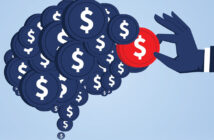by ALFREDO ORTIZ
Much of American progress is rooted in the ability of individuals and businesses to innovate and create new technology that improves the lives of everyone. It’s a progression of advancement inherent in the U.S. economy’s structure, which is best characterized by a free market. But the U.S. isn’t perfect. Politicians have made power grabs that have crowded out the private sector from most effectively providing a product or performing a service. Government creep can have a depressing effect on innovation and shrinks gains in the standard of living.
The modern U.S. Postal Service (USPS) is a good example. Although its historic necessity during the early days of the country – when a mail delivery system was too costly to carry out privately – is without question, it does nothing today that couldn’t easily be performed by FedEx or UPS. In fact, not only could USPS operations be replaced, but its services could be provided more efficiently. Instead of turning a profit, the USPS lost $9.2 billion in 2020.
Unfortunately, the pandemic has accelerated this trend. The economy has grown increasingly reliant on government as trillion-dollar legislative packages passing Congress become the norm, rather than the exception. Some of the spending during the pandemic was necessary. Hotels and other businesses needed a financial lifeline to weather government-induced lockdowns. In fact, I supported these components. But so much of the appropriations went to pet projects and other sources unrelated to the health emergency.
Subsequently, “infrastructure” packages – which puzzlingly have components that have nothing to do with roads or bridges – are being used as a vehicle to once again sidestep the free market. Price controls on certain products, nonsensical environment regulations, and provisions that take away worker autonomy could dampen future advancement.
But even with our defects, compared to the rest of the world, the U.S. is historically sitting pretty. Zoom in on any industry to find proof. Hotels are no exception.
Hotels are now able to provide guests with more in-room technology and amenities at lower costs. A 50-inch flatscreen TV in 2007, for example, had a price tag of $6,000, while you can pick one up today for less than $500. Multiply those savings for the more than five million guest rooms in the U.S. and companies have saved a fortune while providing customers with a better experience.
The rise of the internet and smartphone apps have also revolutionized the industry. Not only is it easier than ever for guests to book a trip, but the various online portals give hotel businesses the option to actively attract customers through social media, or even fill empty rooms by offering discount pricing through travel websites.
It’s a universe that would have been unrecognizable just a few decades ago.
Moving forward, the business community and individuals need to pressure our elected government leaders to safeguard the free-market system that has benefited the U.S. so much. That means fighting against tax hikes, pushing back against more regulatory red tape that will strangle innovation, and advocating for policies that will restore the economy to pre-pandemic levels.
The free-market economy and the innovation it triggers has worked wonders for all Americans. To continue on the same path, we just need to make sure Uncle Sam doesn’t get in the way.
Alfredo Ortiz is the President and CEO of the Job Creators Network.




